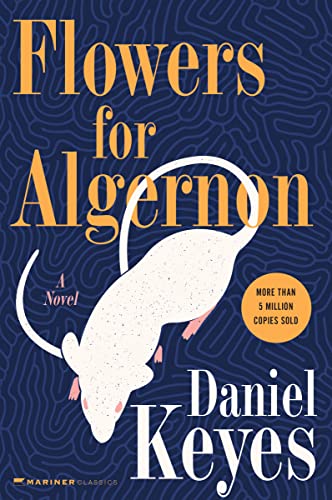Welcome back, Paupack Press! Some of you may remember the start of our paper last year, a lot of you probably do not. Well, new or not from whatever grade I’m so glad that you are reading the first issue of this school year’s paper, and specifically the first book review. What a way to kick off the year because today’s issue is very special. Flowers for Algernon was originally published as a short story in 1959 by Daniel Keys.
It won the Hugo Award for best short story (and for good reason too) and was made into a novel just seven years later. It became a film drama in 1968, but it’s more likely for more of you to be more familiar with the 2000 remake. The plot follows the same storyline about a man by the name of Charles “Charlie” Gordon. A man whom at the age of 32 has (or should I say had) an IQ of 68, and, as you know, the average IQ in America is understood to be around 100.
All Charlie ever wanted… all Charlie ever dreamed of was becoming a “genius.” And when a college decides to try an operation (a human experiment if you will) that’s only ever been tested on lab rats and various other animals, Charlie’s dream had the potential to actually come true.
Will this dream of his be all it’s cracked up to be or will he be stunned at the loss of the childhood innocence that he has managed to keep so much longer than so many others? Will his emotional intelligence struggle to keep up with his intellect (IQ) reaching near 200 after his operation? What even is this “operation” anyway? Does he manage to find love?
What is unique about this book is that it’s written as a form of journal or diary in the fictional character’s words through scientific “progress reports” that in the beginning he spells as “progis riports.” We learn as he does; we fall in love as he does. We discover long hidden away distant memories of his past, his mom, sister, and dad, and overall, what makes him, him as he does so. We even get mad right alongside him too.
Oh, and in case you are still in the dark, “Algernon” is one of the test lab rats. Why would Charlie identify with a mouse so much enough to give him flowers? How does that make sense? Well… I highly suggest you read the book to discover the answer.





